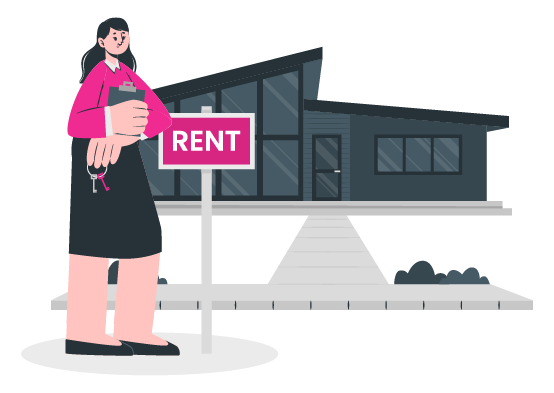Rent Pressure Zones (RPZs) have significantly changed the landscape for Irish landlords. Introduced as a measure to control rapidly rising rental prices, RPZ regulations aim to create a fairer market for tenants. However, for landlords, these rules can present both challenges and opportunities. Understanding how RPZs affect rental income, property investments, and overall market dynamics is crucial for making informed decisions. In this guide, we will explore the impact of Rent Pressure Zones (RPZs) on Irish landlords and how platforms like FindQo.ie can help navigate these regulations.
What Are Rent Pressure Zones (RPZs)?
Rent Pressure Zones (RPZs) are designated areas in Ireland where rent increases are capped to protect tenants from excessive price hikes. These areas are defined based on criteria such as high rent inflation and housing demand. Currently, RPZ regulations limit rent increases to a maximum of 2% per year or in line with the Harmonised Index of Consumer Prices (HICP), whichever is lower.
The Impact of RPZs on Irish Landlords
1. Restrictions on Rent Increases
One of the most significant effects of RPZs on landlords is the limitation on rent hikes. While this regulation aims to stabilise the market for tenants, landlords may find it challenging to adjust rents in line with inflation and rising maintenance costs. This can lead to a decrease in rental yield over time, making property investments less lucrative in high-demand areas.
2. Property Valuation and Investment Decisions
The implementation of RPZs can influence property valuations. Investors considering purchasing rental properties in designated zones must assess whether potential rental income will cover costs and generate a reasonable return. Some landlords may opt to invest in non-RPZ areas where rent controls do not apply, allowing for greater pricing flexibility.
3. Tenant Retention and Stability
On the positive side, RPZs can lead to more stable tenancy agreements. Since rent increases are predictable, tenants are less likely to move frequently, reducing vacancy rates and turnover costs for landlords. Long-term tenants often take better care of properties, resulting in lower maintenance expenses over time.
4. Regulatory Compliance and Penalties
Landlords operating within RPZs must ensure compliance with rent control regulations. Failure to adhere to RPZ rules can lead to financial penalties and disputes with tenants. Keeping accurate rental records and registering tenancy agreements with the Residential Tenancies Board (RTB) is essential to avoid legal complications.
5. Market Supply and Demand Trends
RPZ regulations can influence the supply of rental properties. Some landlords may decide to sell their properties rather than comply with rent caps, reducing the availability of rental units in high-demand areas. This can create a supply-demand imbalance, potentially leading to increased pressure on rental housing in the long term.
Strategies for Landlords to Navigate RPZs

1. Optimising Rental Yields
Landlords can explore strategies to maximise rental yields despite RPZ restrictions. This may include offering furnished accommodations, providing additional services such as utilities or Wi-Fi, and maintaining high property standards to attract premium tenants.
2. Investing in Non-RPZ Areas
For landlords seeking more flexibility in rent pricing, investing in areas outside designated RPZs may be a viable option. Researching emerging rental markets and future growth areas can help landlords identify profitable investment opportunities.
3. Utilising Property Platforms Like FindQo.ie
FindQo.ie offers Irish landlords a reliable platform to advertise rental properties, connect with potential tenants, and stay informed about market trends. Listing properties on trusted platforms ensures higher visibility and helps landlords secure quality tenants more efficiently.
4. Ensuring Legal Compliance
Staying updated on RPZ regulations and maintaining proper documentation is crucial for landlords. Consulting with property professionals and legal advisors can help ensure compliance with tenancy laws and avoid potential disputes.
5. Enhancing Property Value
Since rent increases are limited, landlords should focus on long-term value appreciation. Regular maintenance, energy-efficient upgrades, and strategic renovations can enhance property value and attract high-quality tenants willing to pay premium rents within the RPZ limits.
Rent Pressure Zones (RPZs) have reshaped the rental market in Ireland, bringing both advantages and challenges for landlords. While these regulations protect tenants from excessive rent hikes, they also require landlords to adopt strategic approaches to maintain profitability. By optimising rental yields, considering investments in non-RPZ areas, and leveraging platforms like FindQo.ie, landlords can navigate RPZ regulations effectively. Understanding the impact of RPZs is essential for making informed decisions and sustaining a successful rental business in the evolving Irish property market.

